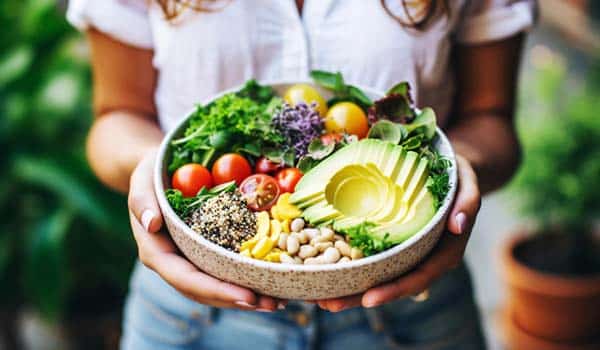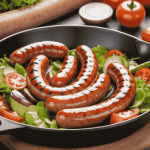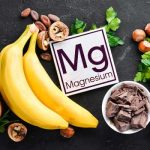Adequate protein intake is crucial for overall health for vegetarians. But what steps should they take to meet their protein needs? This blog post will provide practical tips and strategies to help vegetarians optimize their protein consumption.
By understanding the right food choices and meal planning techniques, vegetarians can easily achieve their protein requirements without compromising their dietary preferences. Stay tuned to discover how to maintain proper protein levels on a vegetarian diet.
Understanding Protein Needs
Importance of Protein
Proteins play a crucial role in muscle repair and growth, aiding in recovery after exercise and supporting overall muscle health. They also contribute to a healthy immune system, helping the body fight off infections and illnesses. Proteins are essential for hormone regulation, ensuring that various bodily functions run smoothly.
Daily Requirements
For vegetarians, the recommended daily protein intake varies based on factors such as age, gender, and activity level. Generally, adults need around 0.8 grams of protein per kilogram of body weight per day. Athletes or those with higher activity levels may require more protein to support their muscles adequately. To meet these requirements, vegetarians can include protein-rich foods like lentils, chickpeas, tofu, quinoa, nuts, and seeds in their meals.
Vegetarian vs Vegan
In terms of protein sources, vegetarians have more flexibility compared to vegans. While both diets emphasize plant-based foods, vegetarians can also include dairy products like milk, cheese, and yogurt as well as eggs for protein. These animal-derived sources offer complete proteins containing all essential amino acids required by the body for various functions. This additional variety allows vegetarians to have a broader range of options when it comes to meeting their protein needs.
11 Diverse Protein Sources
Explore the world of protein beyond the usual suspects with our comprehensive guide, Diverse Protein Sources.
Legumes and Beans
Legumes such as lentils, chickpeas, and black beans are excellent sources of protein for vegetarians. These plant-based proteins are not only rich in fiber but also packed with essential nutrients. Incorporating legumes and beans into a vegetarian diet can help meet the daily protein requirements.
- Black beans: A versatile option for salads, tacos, or soups.
- Chickpeas: Ideal for making hummus or adding to curries.
- Lentils: Perfect for soups, stews, or veggie burgers.
Including legumes and beans in meals provides a sustainable source of protein while promoting heart health and aiding in digestion. Try a hearty lentil soup or a chickpea salad for a delicious protein-packed meal.
Nuts and Seeds
Nuts like almonds, walnuts, and seeds such as chia and flaxseeds offer substantial protein content. These plant-based sources are also rich in healthy fats, vitamins, and minerals. Consuming nuts and seeds regularly can support overall well-being while meeting protein needs.
- Almonds: Enjoy them as a snack or sprinkle over salads.
- Chia seeds: Add to smoothies, yogurt, or oatmeal for an extra protein boost.
- Walnuts: Incorporate into baked goods or use in pesto sauces.
Incorporating nuts and seeds into vegetarian dishes not only enhances flavor but also provides essential nutrients crucial for maintaining energy levels throughout the day.
Whole Grains
Whole grains like quinoa, barley, and brown rice are valuable sources of plant-based proteins. Apart from being rich in protein, these grains offer fiber, vitamins, and minerals necessary for overall health. Including whole grains in the diet ensures a balanced intake of essential nutrients.
- Quinoa: Use as a base for salads or substitute it for rice.
- Barley: Add to soups, stews, or make barley risotto.
- Brown rice: Pair with stir-fried vegetables or tofu for a complete meal.
By incorporating whole grains into daily meals, vegetarians can enhance their protein intake while enjoying diverse culinary options that promote satiety and well-being.
Soy Products
Products like tofu and tempeh are popular meat alternatives among vegetarians due to their high protein content. These versatile ingredients can be used in various dishes ranging from stir-fries to sandwiches. Introducing soy products into the diet offers a convenient way to meet daily protein requirements without compromising on taste.
- Tofu: Ideal for marinating, grilling, or stir-frying with vegetables.
- Tempeh: Great for making sandwiches, wraps, or adding to salads.
Incorporating soy products into vegetarian cooking not only diversifies meal options but also ensures adequate protein intake essential for muscle repair and overall health maintenance.
Combining Proteins
Complementary Proteins
Proteins are essential for vegetarians to ensure a well-rounded diet. Complementary proteins are pairs of plant-based foods that together provide all nine essential amino acids. This concept is crucial for vegetarians as it helps them obtain complete proteins necessary for bodily functions. By combining legumes with whole grains, such as beans with rice, or lentils with quinoa, vegetarians can create these complete protein sources.
Pairing beans with corn, or peanut butter with whole wheat bread are simple yet effective ways to ensure a balanced intake of amino acids. These combinations not only enhance the nutritional value of meals but also contribute to meeting daily protein requirements. Including a variety of complementary proteins in the diet is key to maintaining optimal health and supporting muscle growth and repair.
Meal Pairing Ideas
To maximize protein intake, vegetarians can pair tofu with broccoli in a stir-fry or add chickpeas to salads for an extra boost. Mixing nuts and seeds into yogurt or oatmeal provides a tasty and nutritious combination. Incorporating quinoa into vegetable stir-fries or salads adds a complete protein source to the meal.
Creating buddha bowls with a base of brown rice topped with black beans, avocado, and salsa offers a satisfying and protein-rich meal option. Another idea is preparing veggie burgers using black beans and serving them on whole grain buns with avocado slices. These meal pairing ideas not only diversify the diet but also ensure adequate protein consumption for vegetarians.
- Plant-based diets rich in complementary proteins support overall health.
- Balanced meals combining various protein sources help maintain energy levels throughout the day.
Protein-Rich Recipes
Breakfast Options
Starting the day with a protein-rich breakfast is crucial for vegetarians to meet their nutritional needs. Consider options like quinoa porridge topped with nuts and seeds for a hearty morning meal. Another quick idea is a tofu scramble with vegetables for a savory kick. These recipes are not only delicious but also packed with essential proteins.
For busy mornings, prepare overnight chia seed pudding by soaking chia seeds in almond milk overnight and topping them with fruits in the morning. This simple recipe ensures you get a protein boost without sacrificing taste. Remember, a protein-packed breakfast helps sustain energy levels throughout the day.
Lunch Suggestions
When it comes to lunch, there are plenty of options for vegetarians to enjoy meals rich in protein. Whip up a chickpea salad loaded with colorful veggies and a tangy dressing for a refreshing midday meal. For something heartier, try making lentil soup paired with whole-grain bread.
To make lunchtime easier, consider meal prepping protein-rich dishes like quinoa bowls with roasted vegetables and a tahini dressing. These lunches not only provide ample protein but also keep you full and satisfied until dinner time.
Dinner Ideas
For dinner, indulge in flavorful vegetarian dishes that prioritize protein intake. Prepare a black bean burger served on whole-grain buns with avocado slices for a satisfying meal. Another option is grilled tofu skewers marinated in teriyaki sauce alongside stir-fried vegetables.
To ensure balanced dinners, include sides like roasted sweet potatoes or steamed broccoli to complement your main dish. Experiment with different spices and herbs to enhance the flavors of your protein-packed dinners.
Supplements and Powders
Choosing Supplements
Supplements play a crucial role in ensuring vegetarians meet their protein requirements adequately. They can help fill the gaps left by a plant-based diet. When selecting protein supplements, opt for options like pea protein, soy protein, or brown rice protein. These sources are rich in essential amino acids vital for muscle repair and growth.
To ensure optimal nutrition, it’s essential to choose quality protein supplements. Look for products that are third-party tested to guarantee purity and quality. Consider supplements that are free from additives and artificial ingredients. Prioritize products with a high protein content per serving to maximize your intake.
Reading Labels
Reading food labels is essential for identifying the protein content in vegetarian products. When scanning labels, focus on the total protein per serving, which indicates the amount of protein you’ll consume. Look for key terms like “complete protein,” signifying that the product contains all nine essential amino acids necessary for the body.
Ensure you understand the portion sizes mentioned on labels to accurately gauge your protein intake. Watch out for terms like “isolates” or “concentrates,” indicating the type of processing involved in producing the supplement. Opt for products with minimal processing to retain the nutrients present naturally in the source.
Balancing Macronutrients
Fats and Carbohydrates
Balancing macronutrients is crucial for vegetarians to ensure they get proper protein levels. Fats play a vital role in energy storage and absorption of fat-soluble vitamins. Incorporating healthy fats like avocados, nuts, and olive oil can enhance nutrient absorption.
Carbohydrates are essential for providing energy to the body. In a balanced vegetarian diet, complex carbohydrates such as whole grains, legumes, and vegetables are ideal choices. They complement proteins by providing sustained energy release throughout the day.
- Healthy Fats: Avocados, nuts, seeds
- Complex Carbohydrates: Quinoa, brown rice, sweet potatoes
Vitamins and Minerals
For vegetarians aiming to maintain optimal protein levels, certain vitamins and minerals are key players in supporting protein metabolism. Vitamins like B12 and iron are crucial for energy production and red blood cell formation. Minerals such as zinc and calcium aid in muscle function and bone health.
A well-rounded vegetarian diet is essential to meet all nutrient needs. Including a variety of foods ensures an adequate intake of essential vitamins and minerals. Vegetarian sources rich in these nutrients include fortified cereals, leafy greens, lentils, and dairy alternatives.
- Vegetarian Sources: Fortified cereals, spinach, lentils
Closing Thoughts
Ensuring you meet your protein needs as a vegetarian involves understanding diverse protein sources, combining proteins effectively, trying out protein-rich recipes, considering supplements and powders, tracking your intake, overcoming challenges, balancing macronutrients, and monitoring your health impact. By following these steps diligently, you can maintain optimal protein levels and support your overall well-being.
Take charge of your nutrition by incorporating these strategies into your daily routine. Experiment with new recipes, stay informed about different protein sources, and listen to your body’s needs. Remember that small changes can lead to significant improvements in your diet and health. Stay proactive and committed to achieving a balanced vegetarian diet rich in protein for a healthier lifestyle.



